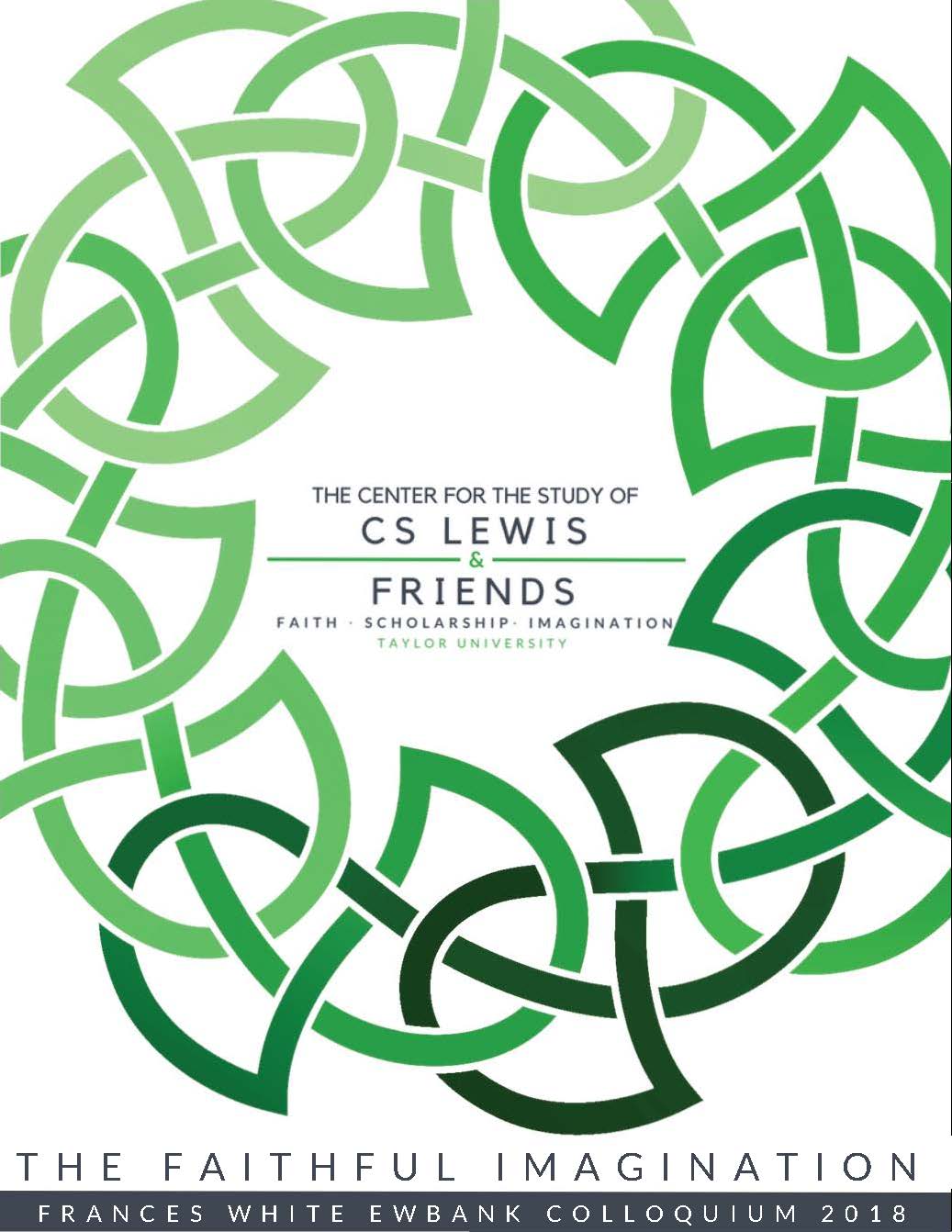Event Title
Concurrent Paper Session 7C: The Existential Imagination
Location
Euler 062/063
Start Date
2-6-2018 1:30 PM
Description
"The Faithful Imagination in a Material World" - Donald P. Gauger
Can reading the fantasy works of certain authors help us better understand difficult spiritual concepts, gain insights bridging the gap between the physical and spiritual worlds, and live spiritually-fulfilled lives in a material world? In George MacDonald’s novel Phantases: A Faerie Romance for Men and Women, Anodos experiences twenty-one years of life in fairyland in twenty-one days, gains spiritual insights from those adventures, and is thereafter a changed person. In J. R. R. Tolkien’s fantasy novel, The Children of Húrin, the son Túrin repeatedly illustrates the spiritual interplay between God’s Grace, evil’s curse, and consequences in the material world of man’s free will. In C. S. Lewis’s fantasy The Screwtape Letters, one sentence, “Humans are amphibians—half spirit and half animal” is a key concept on the dynamic challenge of living spiritually in a material world and gives insights into Lewis’s writing.
"'Not Yet' Reality and the Faithful Imagination" - D. Shane Combs
In C. S. Lewis’s The Last Battle, Aslan makes the following declaration to the protagonists: “You do not yet look as happy as I mean you to be.” The protagonists, perhaps quite rightly, might have responded: If not now, when? This is Book Seven, Aslan. For Goodness’ sake, it’s even called The Last Battle! This essay conceptualizes a ‘not-yet’ space that is both fueled by and fuels a faithful imagination. It is the ‘not-yet’ space, in the face of destruction and in spite of the cynicism after World War I, that allows for the writing of The Chronicles of Narnia and The Lord of the Rings. It is a ‘not-yet’ space that leads Tolkien to write that “There was an Eden on this very unhappy earth. We all long for it, and we are constantly glimpsing it.” This presentation calls for the renewal of a faithful imagination enlarged by both a ‘not-yet’ longing and the joyful, captivating mythmaking it can produce.
"When Lewis Suggests More Than He States: Questions Raised by Not Fully Answered in The Chronicles of Narnia - Devin Brown
In Surprised by Joy, Lewis tells readers that there came a point where, as he puts it, he had learned “what writing means.” Among the discoveries Lewis reports he had made was the fact that good writing should “not merely state but suggest.” We can see this principle at work in The Chronicles of Narnia in the questions that Lewis raises but chooses not to fully answer. What does Lewis suggest about the extent that Aslan may or may not know the future? Where do we find specific suggestions of how Aslan may be at work in our world? In this paper I will explore a number of instances in The Chronicles of Narnia where Lewis suggests more than he states and will offer thoughts on how these intentionally unanswered questions contribute to our reading experience
Event Type
Paper
Concurrent Paper Session 7C: The Existential Imagination
Euler 062/063
"The Faithful Imagination in a Material World" - Donald P. Gauger
Can reading the fantasy works of certain authors help us better understand difficult spiritual concepts, gain insights bridging the gap between the physical and spiritual worlds, and live spiritually-fulfilled lives in a material world? In George MacDonald’s novel Phantases: A Faerie Romance for Men and Women, Anodos experiences twenty-one years of life in fairyland in twenty-one days, gains spiritual insights from those adventures, and is thereafter a changed person. In J. R. R. Tolkien’s fantasy novel, The Children of Húrin, the son Túrin repeatedly illustrates the spiritual interplay between God’s Grace, evil’s curse, and consequences in the material world of man’s free will. In C. S. Lewis’s fantasy The Screwtape Letters, one sentence, “Humans are amphibians—half spirit and half animal” is a key concept on the dynamic challenge of living spiritually in a material world and gives insights into Lewis’s writing.
"'Not Yet' Reality and the Faithful Imagination" - D. Shane Combs
In C. S. Lewis’s The Last Battle, Aslan makes the following declaration to the protagonists: “You do not yet look as happy as I mean you to be.” The protagonists, perhaps quite rightly, might have responded: If not now, when? This is Book Seven, Aslan. For Goodness’ sake, it’s even called The Last Battle! This essay conceptualizes a ‘not-yet’ space that is both fueled by and fuels a faithful imagination. It is the ‘not-yet’ space, in the face of destruction and in spite of the cynicism after World War I, that allows for the writing of The Chronicles of Narnia and The Lord of the Rings. It is a ‘not-yet’ space that leads Tolkien to write that “There was an Eden on this very unhappy earth. We all long for it, and we are constantly glimpsing it.” This presentation calls for the renewal of a faithful imagination enlarged by both a ‘not-yet’ longing and the joyful, captivating mythmaking it can produce.
"When Lewis Suggests More Than He States: Questions Raised by Not Fully Answered in The Chronicles of Narnia - Devin Brown
In Surprised by Joy, Lewis tells readers that there came a point where, as he puts it, he had learned “what writing means.” Among the discoveries Lewis reports he had made was the fact that good writing should “not merely state but suggest.” We can see this principle at work in The Chronicles of Narnia in the questions that Lewis raises but chooses not to fully answer. What does Lewis suggest about the extent that Aslan may or may not know the future? Where do we find specific suggestions of how Aslan may be at work in our world? In this paper I will explore a number of instances in The Chronicles of Narnia where Lewis suggests more than he states and will offer thoughts on how these intentionally unanswered questions contribute to our reading experience


